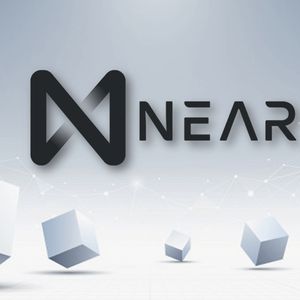BitcoinWorld AI Memory Breakthrough: Mem0 Secures $24M to Revolutionize AI Apps In the rapidly evolving world of artificial intelligence, a fundamental challenge persists: AI models struggle to remember past interactions. Imagine a conversation that resets every time the connection drops – frustrating, right? This critical gap is where Mem0 steps in, poised to become the AI memory layer for the next generation of applications. The startup recently announced a significant $24 million funding round, a clear signal that industry leaders believe in its mission to give AI the power of recall. This development is not just about technical advancement; it’s about enabling a future where AI interactions are as seamless and personal as human ones, a crucial step for the intelligent systems shaping our digital lives. Understanding the AI Memory Challenge Large Language Models (LLMs) have transformed how we interact with technology, but they possess a significant limitation: a short-term memory. Unlike humans who can effortlessly pick up a conversation where they left off, AI models typically forget everything after an interaction concludes. Each new query is a blank slate, leading to repetitive questions and a lack of contextual understanding. This absence of persistent AI memory hinders the development of truly personalized and intelligent applications. Mem0 addresses this by creating what its founder, Taranjeet Singh, calls a “memory passport.” This innovative concept allows an AI’s memory to travel across different applications and agents, much like an email address or login credentials provide continuity today. This foundational shift means AI can learn and adapt from every interaction, building a richer, more context-aware experience for users. Mem0 Funding: A Strong Vote of Confidence The recent announcement of Mem0’s $24 million funding round underscores the market’s belief in its pivotal role. This substantial capital injection comprises $3.9 million in previously unannounced seed funding and a $20 million Series A round. The Series A was led by Basis Set Ventures , an AI-focused early-stage fund, with continued participation from existing investors Kindred Ventures and Y Combinator . New strategic backers include Peak XV Partners and the GitHub Fund . Beyond institutional investors, Mem0 has attracted a roster of influential angel investors, signaling broad industry support: Dharmesh Shah ( HubSpot ) Scott Belsky (ex-CPO Adobe ) Olivier Pomel ( Datadog ) Thomas Dohmke (ex-CEO GitHub ) Paul Copplestone ( Supabase ) James Hawkins ( PostHog ) Lukas Biewald ( Weights & Biases ) Brian Balfour ( Reforge ) Philip Rathle ( Neo4j ) Jennifer Taylor (former President, Plaid ) This diverse group of investors, many of whom have shaped the modern software ecosystem, highlights the perceived potential and importance of Mem0’s technology. Empowering AI Apps with Persistent Memory Mem0’s framework offers developers a powerful tool to build sophisticated AI apps that truly understand their users. It allows for the storage, retrieval, and evolution of user memory across various models, applications, and platforms. The system is model-agnostic, ensuring compatibility with leading LLMs from OpenAI and Anthropic , as well as open-source alternatives. Furthermore, it integrates seamlessly with popular AI development frameworks like LangChain and LlamaIndex . The practical applications are extensive: Therapy bots: Recalling past conversations and emotional states to provide more empathetic and effective support. Productivity agents: Remembering personal habits, preferences, and project contexts to offer tailored assistance. AI companions: Adapting and growing smarter over time, fostering deeper, more personalized interactions. Finance companions: Remembering trading history and financial goals to provide relevant advice. Taranjeet Singh envisions a future where Mem0 provides “day-one personalization through a shared memory network,” likening it to “Plaid for memory.” This vision suggests a future where AI systems can access a universal, secure memory layer, transforming user experiences across the digital landscape. The Rise of LLM Memory Solutions The concept of memory for AI is not entirely new, but it is rapidly becoming a critical area of innovation. Even major players like OpenAI have started testing long-term memory features in ChatGPT , with CEO Sam Altman hinting at persistent memory being central to future hardware devices. Other AI labs are also exploring experimental memory systems for their agents. However, Singh argues that while these large AI labs are building proprietary memory systems, they have little incentive to make them portable or interoperable. He notes, “Memory is becoming one of their key moats now that LLMs are getting commoditized.” This creates a need for an open, neutral solution for developers who want to build applications that offer persistent, personalized experiences without being locked into a single ecosystem. Mem0 aims to fill this void, providing a versatile LLM memory framework that fosters innovation across the AI development community. Mem0’s Traction and YC-Backed AI Journey Despite being a relatively young startup, launched in January 2024, Mem0 has already demonstrated impressive traction, a testament to its foundational importance and the team’s execution. As a YC-backed AI venture, it has quickly garnered significant attention and adoption within the developer community. Key metrics highlight its rapid growth: Open-source API: Surpassed 41,000 GitHub stars, making it one of the most widely adopted memory frameworks for AI developers. Python package downloads: Recorded over 13 million downloads. API calls: Processed 35 million API calls in Q1 2025, surging to 186 million by Q3, reflecting approximately 30% month-over-month growth. Cloud service: Over 80,000 developers have signed up, with Mem0’s cloud API now handling more memory operations than any other provider. Strategic partnership: Serves as the exclusive memory provider for AWS’s new Agent SDK. The journey of founder Taranjeet Singh is equally compelling. After stints at Indian startups like Paytm and Khatabook , Singh ventured into the burgeoning AI space, building one of the first GPT app stores. This experience led him to create Embedchain, an open-source project for indexing and retrieving unstructured data. The success of Embedchain, which gained over 8,000 GitHub stars, propelled Singh to Silicon Valley after a persistent cold email campaign. In the U.S., he reconnected with longtime friend and now co-founder and CTO, Deshraj Yadav , who had led the AI Platform at Tesla Autopilot . Their previous collaboration, EvalAI, an open-source Kaggle alternative, also saw significant traction. The pivot to Mem0 came from a direct user need: a meditation app they built went viral in India, but users consistently requested the app to remember their meditative journey. This feedback was the catalyst for creating Mem0, proving that real-world problems often lead to the most impactful solutions. Conclusion Mem0’s substantial funding and rapid adoption highlight its critical role in the future of artificial intelligence. By providing a portable, persistent memory layer, Mem0 is not just solving a technical challenge; it is enabling a new era of personalized, intelligent, and truly interactive AI apps . As AI models become increasingly commoditized, the ability to remember and learn from past interactions will be a defining factor in their utility and user experience. Mem0 is positioned to be at the forefront of this transformation, empowering developers to build AI systems that are not only smart but also genuinely remember who you are. Frequently Asked Questions Q1: What problem does Mem0 solve for AI? A1: Mem0 solves the problem of AI models forgetting past interactions, providing a persistent, portable memory layer that allows AI to learn and adapt over time, much like human memory. Q2: Who are the key investors in Mem0’s $24M funding round? A2: Key investors include Basis Set Ventures , Y Combinator , Peak XV Partners , GitHub Fund , and Kindred Ventures , alongside notable angel investors like Dharmesh Shah ( HubSpot ) and Scott Belsky (ex-CPO Adobe ). Q3: How does Mem0 enable personalized experiences in AI applications? A3: Mem0’s framework allows developers to store, retrieve, and evolve user memory across different models and platforms. This enables AI applications like therapy bots, productivity agents, and companions to recall past conversations and personal habits, leading to highly personalized and context-aware interactions. Q4: What is the significance of Mem0’s open-source approach to AI memory? A4: While major AI labs develop proprietary memory systems, Mem0 offers an open, neutral solution. This ensures portability and interoperability, allowing developers to build sophisticated AI applications without being locked into a single vendor’s ecosystem, fostering broader innovation. Q5: Who is Taranjeet Singh , and what is his background? A5: Taranjeet Singh is the founder of Mem0 . He previously worked at Paytm and Khatabook , founded Embedchain, and co-founded EvalAI. His experience in building and scaling AI-related projects, including a GPT app store, led him to identify the critical need for persistent AI memory. To learn more about the latest AI memory trends, explore our article on key developments shaping AI features and institutional adoption. This post AI Memory Breakthrough: Mem0 Secures $24M to Revolutionize AI Apps first appeared on BitcoinWorld .
















